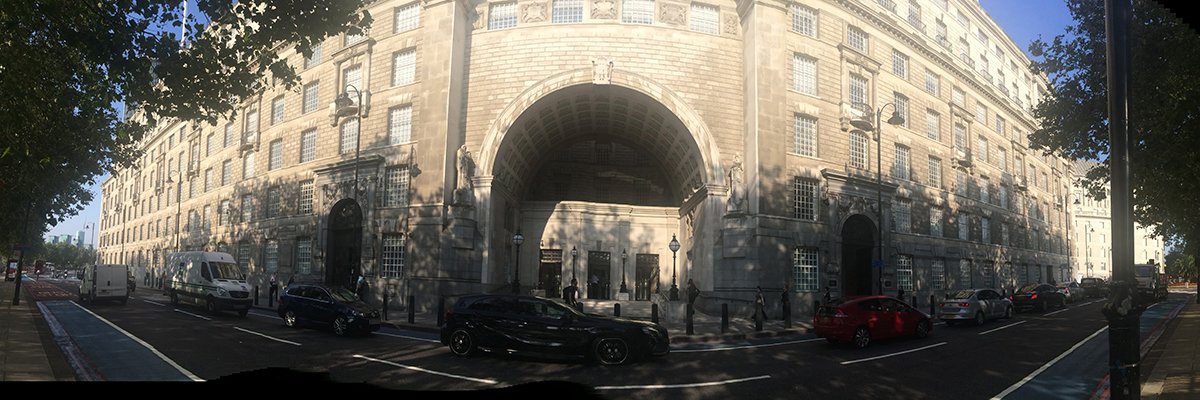
The Home Office has unlawfully allowed MI5 to gather vast amounts of the public’s data by wrongly approving bulk surveillance warrants, Britain’s most secret court heard on 25 July 2022.
The human right’s groups Liberty and Privacy International told the Investigatory Powers Tribunal that MI5 has provided false information to obtain warrants for bulk surveillance. The Home Office failed to investigate breaches by MI5, some of which date as far back as 2010, the court heard.
Liberty lawyer Megan Goulding said that the case showed that the UK’s surveillance laws are not fit for purpose and fail to offer adequate safeguards to protect the public from abuse.
“For 10 years, MI5 has been knowingly breaking the rules and failing to report it, and the government has failed to investigate clear red flags. There has been no proper investigation into MI5’s breaches by the Home Office despite having been put on notice by briefings,” she said.
“Instead, the home secretary continued to issue unlawful warrants, and MI5 kept information from authorities about how it mishandled our data,” she added.
The Security Service has admitted during the course of legal hearings that it stored the public’s data when it had no legal right to do so, and that it failed to disclose the problems either to the Home Office or to oversight bodies.
According to submissions presented to the Investigatory Powers Tribunal, MI5 broke key legal safeguards by unlawfully retaining and using individual’s private data gathered through covert surveillance.
In particular, MI5 breached safeguards governing how long it could lawfully retain data and who had access to it, according to legal submissions filed by the human rights groups.
The Security Service also failed to follow safeguards designed to protect legally privileged material which includes private correspondence between lawyers and their clients.
The tribunal was told today that the Home Office and successive home secretaries failed to investigate MI5’s failures despite having information that indicated MI5 was acting outside the law.
Home secretaries can only approve surveillance warrants if they are satisfied that MI5 is meeting safeguards to ensure that intercepted data is handled lawfully. But Privacy International and Liberty argue that the government has repeatedly ignored signs of MI5’s unlawful handling of data and that the Home Office continued to unlawfully sign-off on surveillance warrants.
The groups say in legal submissions that MI5 was aware of systematic compliance risks in its electronic surveillance operations as far back as 2010, but did not take steps to understand or fix the problems for a number of years.
The Security Service failed to report its non-compliance to the Home Office and regulators, and failed to disclose it to the Investigatory Powers Tribunal during relevant litigation for several years.
MI5 also gave false information about its legal compliance to the home secretary and the Investigatory Powers Commissioner’s Office (IPCO), which regulates surveillance, which led to further unlawful warrants being issued.
Details of MI5’s failure to comply with legal safeguards for a period of 10 years first emerged in 2019 as part of a legal challenge by Liberty into the Investigatory Powers Act (IPA) 2016, also known as the Snooper’s Charter.
The government disclosed documents, including correspondence between MI5, IPCO and the Home Office, along with IPCO inspection reports.
They revealed that MI5 unlawfully held surveillance data in “ungoverned spaces” in its IT systems, while IPCO’s reports found that MI5 stored and handled data in an “undoubted unlawful manner”.
Although no information has been disclosed on whose data has been mishandled, the human rights groups believe it is likely to include data on many people who are not suspected of wrong-doing.
Under the Investigatory Powers Act 2016, MI5 and other state bodies are allowed to collect and store wide-ranging data on any member of the public.
The human rights groups are calling for the court to quash all unlawfully issued surveillance warrants and to destroy all unlawfully obtained data. They also argue that the Investigatory Powers Act should be found unlawful.
Privacy International’s legal director Caroline Wilson Palow said that MI5’s persistent failure to follow the law is inexcusable.
“For years, they have ignored safeguards put in place to protect us from abuse. These safeguards are a fundamental check on the vast power intelligence agencies can wield over all of us, especially when they engage in mass surveillance,” she said.
Privacy International campaigned against the Investigatory Powers Act in 2015 when the human rights group raised concerns that the safeguards against abuse were not strong enough.
“Here we are, seven years later, with the rules that are enshrined in law being ignored in practice. Those rules need a radical overhaul,” said Wilson Palow
The case continues.
